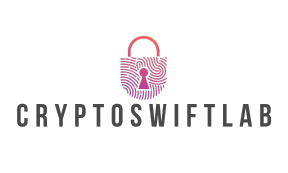Table of Contents
ToggleIn a world where cyber threats lurk around every corner, the demand for cybersecurity analysts has skyrocketed. It’s like being a digital superhero, but instead of a cape, you’ve got a keyboard and an endless supply of caffeinated beverages. For those looking to dive into this exciting field, entry-level positions are the perfect launching pad.
Imagine stepping into a role where you get to outsmart hackers while wearing your favorite hoodie. With the right skills and a dash of determination, anyone can break into this lucrative career. From analyzing security breaches to safeguarding sensitive information, the opportunities are as vast as the internet itself. So, if you’ve ever dreamed of being the guardian of the digital realm, now’s the time to strap on your virtual armor and get ready to embark on an adventure that’s both rewarding and, let’s face it, pretty cool.
Overview of Cybersecurity Analyst Role
Cybersecurity analysts focus on protecting organizations from digital threats. They monitor networks for security breaches, analyze potential vulnerabilities, and implement security measures to safeguard sensitive information. Daily tasks may include reviewing security alerts, conducting risk assessments, and developing security protocols.
Entry-level positions often involve learning essential tools and techniques used in the industry. Analysts frequently utilize security information and event management (SIEM) software to detect and respond to incidents. They also collaborate with IT teams to ensure compliance with security standards and regulations.
Effective communication skills play a vital role in this profession. Analysts must convey security findings clearly to non-technical staff and management. They also draft reports detailing security incidents and their resolutions.
Continuous learning remains essential in this rapidly evolving field. Participating in training and obtaining relevant certifications, such as CompTIA Security+ or Certified Ethical Hacker, enhances an analyst’s skills and marketability. Understanding current threats and security trends equips individuals to respond effectively to emerging challenges.
Analysts often face high-pressure situations requiring critical thinking and quick decision-making. The ability to prioritize tasks effectively ensures that organizations minimize potential damage from breaches. As businesses increasingly rely on digital infrastructure, the demand for skilled cybersecurity analysts continues to rise, reflecting the importance of this role within the broader IT landscape.
Required Skills for Cybersecurity Analyst Entry Level
Entry-level cybersecurity analysts must possess a mix of technical and soft skills to excel in their roles. These skills enable them to tackle security challenges effectively.
Technical Skills
Understanding various operating systems is essential. Cybersecurity analysts should know Windows, Linux, and macOS to identify vulnerabilities. Familiarity with programming languages such as Python and JavaScript can enhance their ability to develop tools and scripts. Proficiency in security information and event management (SIEM) software helps in monitoring network activities. Knowledge of intrusion detection systems (IDS) and firewalls is crucial as well. Analysts benefit from experience with vulnerability assessment tools like Nessus or Qualys. Comprehending networking protocols and architecture empowers them to perform effective risk assessments. Staying updated on current cyber threats strengthens their capability to respond to incidents.
Soft Skills
Analysts must communicate complex security information clearly. Engaging with non-technical staff requires the ability to translate technical jargon into understandable terms. Critical thinking skills play a significant role when assessing security incidents. Problem-solving abilities enable analysts to identify the root cause of security breaches. Collaboration with IT teams fosters a more secure environment. Time management skills help in prioritizing tasks effectively, especially during high-pressure moments. Adaptability is vital as the cybersecurity landscape continually evolves. Maintaining a thirst for knowledge drives professional growth and enhances their effectiveness in preventing future threats.
Educational Requirements and Certifications
Educational background and relevant certifications play a significant role in entering the cybersecurity analyst field. Formal education provides a strong foundation, while certifications enhance specific skill sets.
Degree Programs
A bachelor’s degree in fields like computer science, information technology, or cybersecurity serves as a standard pathway. Some community colleges and universities offer associate degrees, which can lead to entry-level positions. Programs that emphasize network security, information systems, and programming languages equip students with essential knowledge. Graduates equipped with degrees from accredited institutions often possess a competitive edge in the job market.
Recommended Certifications
Obtaining industry-recognized certifications boosts credibility and job readiness. CompTIA Security+ remains a widely recommended certification for entry-level analysts, covering essential security concepts and practices. Certified Ethical Hacker (CEH) focuses on assessing and addressing vulnerabilities, making it valuable for specialized roles. Other certifications like Cisco’s CCNA Cyber Ops and (ISC)²’s SSCP offer targeted knowledge. Pursuing these credentials demonstrates commitment to learning and staying current with cybersecurity trends.
Job Market and Career Outlook
The job market for cybersecurity analysts shows significant growth due to increasing cyber threats. Many organizations prioritize cybersecurity and rely on skilled analysts to protect sensitive data.
Entry Level Opportunities
Entry-level positions abound in the cybersecurity field. Roles like security analyst, security technician, and IT support specialist offer various starting points. Employers often look for candidates with foundational knowledge in operating systems, networking protocols, and programming languages. Internships and hands-on training enhance job prospects and enable candidates to gain practical experience. Moreover, positions typically don’t require extensive experience, making them accessible to recent graduates or individuals transitioning from different fields.
Growth Potential
Growth potential in cybersecurity is high and continues to rise. The Bureau of Labor Statistics (BLS) predicts a job growth rate of 31 percent for information security analysts from 2019 to 2029. Opportunities for advancement abound, with many analysts progressing into senior positions, cybersecurity managers, or specialized roles. Analysts can transition to roles like penetration testing or incident response after gaining experience. Continuous professional development, through certifications or specialized training, also enhances advancement potential. The demand for skilled professionals ensures a stable and rewarding career path within this field.
Tips for Landing Your First Cybersecurity Analyst Job
Securing a first job as a cybersecurity analyst requires strategic preparation and presentation of skills. Several effective strategies can help candidates stand out in a competitive job market.
Resume and Cover Letter Tips
Highlight relevant skills clearly in the resume. Use bullet points to showcase experience with operating systems, programming languages, and tools like SIEM software. Include certifications, such as CompTIA Security+ or Certified Ethical Hacker, to demonstrate commitment. Tailor each cover letter to specific roles, mentioning how skills align with job requirements. Employers seek candidates who exhibit a passion for cybersecurity, so express enthusiasm for the field. Research the company and reference its projects or values to make a personal connection. Make sure to proofread carefully, as attention to detail reflects professionalism.
Interview Preparation
Preparation increases the likelihood of success in interviews. Familiarize with common interview questions related to cybersecurity concepts, tools, and daily tasks. Practicing responses helps build confidence. Research the organization’s cybersecurity initiatives and current threats it faces; this knowledge showcases genuine interest. Prepare questions to ask interviewers to demonstrate curiosity about the role. Mindfulness techniques can help manage anxiety during interviews. Lastly, a professional appearance and strong communication skills create positive first impressions, further enhancing candidates’ chances of securing the position.
The path to becoming a cybersecurity analyst is filled with opportunities for growth and advancement. With the rising demand for skilled professionals in this field aspiring analysts can find rewarding entry-level positions that set the stage for a successful career.
By focusing on developing both technical and soft skills candidates can enhance their employability and navigate the competitive job market. Continuous learning through certifications and hands-on experience will further solidify their expertise.
Ultimately a career in cybersecurity not only offers financial stability but also the chance to make a meaningful impact in protecting sensitive information and combating cyber threats.







